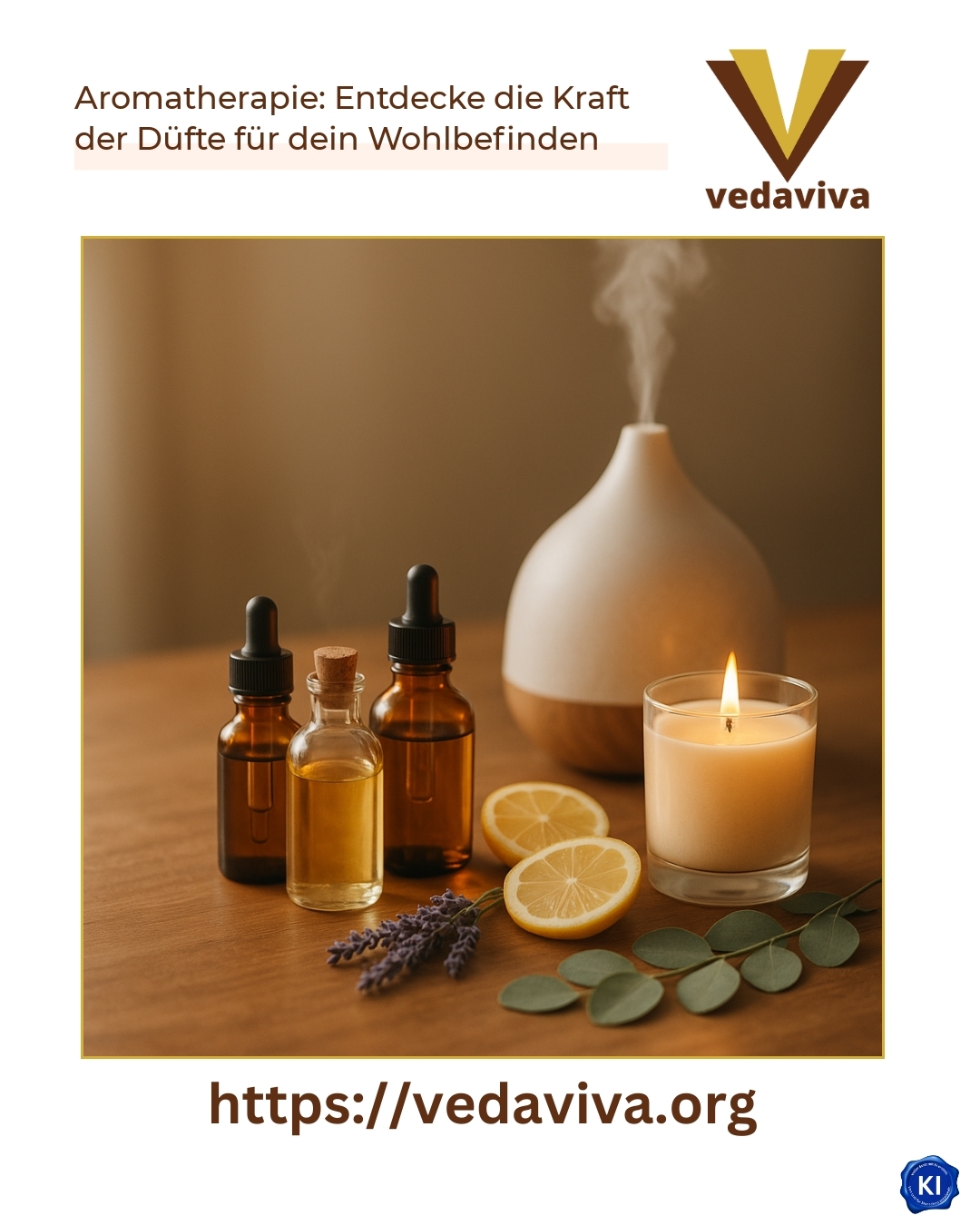The fine art of using fragrance to promote well-being
The targeted use of plant essences, also known in their chemically active form, opens up a wide range of possibilities for supporting personal well-being and promoting pleasant states of relaxation and balance. The variety of natural extracts makes it possible to cater to different individual needs without making generalised promises.
Various forms of application and their effect
There are many ways to use these pure plant essences: they can be used as a fragrance for inhalation, nebulised in a diffuser or applied to the skin, for example through gentle massages. This has a direct influence on the central nervous system, as the fragrance molecules reach the limbic system, which is responsible for emotions and memory, via the olfactory mucosa. There they can set impulses that are often associated with an increased mood or stress reduction.
In practice, users often find that certain essences can help them feel calmer and more secure, while others are perceived as revitalising.
BEST PRACTICE at company XYZ (name changed due to NDA contract) In a team coaching session, a diffuser with a mild lavender blend was used during breaks, which, according to participants, often led to a relaxed atmosphere and improved concentration. The targeted use of the diffuser helped to reduce stress in everyday working life through subtle fragrance impulses.
BEST PRACTICE at company XYZ (name changed due to NDA contract) Citrus essences were used in a mental balance workshop, and many participants found their fresh flavour invigorating - as a result, they often reported increased alertness and clearer thinking after the sessions.
BEST PRACTICE at company XYZ (name changed due to NDA contract) In an individual counselling session, the regular use of rosemary and bergamot extracts via massage oil accompanied the process of goal clarification. The person concerned reported increased inner peace and improved focussing on their intentions.
Concrete examples from everyday life
Many people utilise the power of fragrances to positively influence their everyday lives. One example is the evening routine of adding a few drops of a calming essence blend to the bath water, which is often perceived as a soothing accompaniment. Another example is the integration of fragrant essences into meditation or breathing exercises, whereby the practice can be experienced as supportive.
Selected fragrances, such as a combination of citrus and herbal essences, can also create a pleasant atmosphere in the working environment to support well-being and temporarily reduce stress impulses.
Scientific background and mode of action
By being absorbed through the nose, the molecules of plant essences have a direct effect on the limbic system, a part of the brain that controls emotions and memory. This explains why scents are often associated with memories and feelings. The interaction of these scents with the nervous system can provide impulses for well-being and relaxation. Current neuroscientific research supports these connections and shows physiological effects such as a possible slowing of the heartbeat and a calming effect on the nervous system.
BEST PRACTICE at company XYZ (name changed due to NDA contract) As part of psychological counselling, the use of essential flower essences via inhalations was used as support. The clients often reported that they felt more emotionally stable and were better able to deal with stress. The pleasant fragrance experiences had a supportive effect in challenging phases.
BEST PRACTICE at company XYZ (name changed due to NDA contract) In a coaching session on stress management, citrus and herbal essences were combined and distributed via a diffuser. Participants stated that this combination contributed to greater calmness and clarity in hectic moments.
BEST PRACTICE at company XYZ (name changed due to NDA contract) During a series of self-care courses, counsellors recommended that participants make their own personal fragrance blend and use it as needed throughout the day. This practice was described as a helpful stimulus for self-awareness and mindfulness.
Tips for responsible use
Fragrance essences should always be used with caution. Recommendations include the selection of high-quality products that take sensitive individual reactions into account. Caution is advised, especially if you have sensitive skin or allergies. Gentle and respectful handling of these natural substances ensures that they can be integrated into everyday life in a supportive and pleasant way.
The integration of fragrance essence applications into personal rituals can provide impulses to stay more consciously in touch with body and mind without making absolutist promises regarding effects.
My analysis
The use of plant essences in various forms offers a multi-faceted opportunity to experience individualised support in everyday life, which is often experienced as supportive in promoting inner balance. The variety of possible applications makes it possible to incorporate small rituals according to personal preferences and needs, which can contribute to relaxation and emotional balance. It is important to always see the method as a supplement that can provide impulses and support without serving as a substitute for medical or therapeutic treatments.
Further links from the text above:
[1] Essential oils: Use and effect - netDoktor.de
[2] Aromatherapy for relaxation: discover the benefits
[3] Aromatherapy and Essential Oils - NOBLE: North of Boston Library
[4] The healing power of aromatherapy in psychotherapy
[5] Aromatherapy for mental and emotional well-being
Legal notice: Coaching does not replace therapy. It serves personal development. I do not diagnose or promise a cure. My offer is for personal development and is not a substitute for medical, psychotherapeutic or curative treatment. Please consult a medically qualified specialist if you have any health complaints. The experiences described here are based on individual feedback from my clients. They are not a guarantee of success and do not replace medical or therapeutic counselling.













